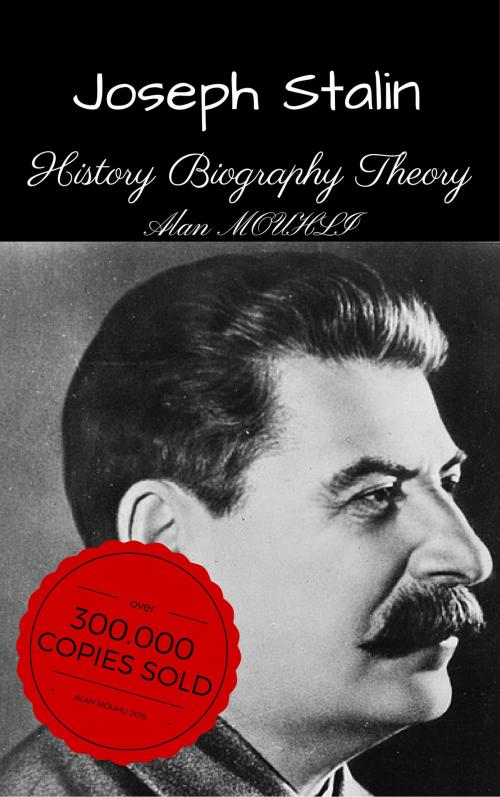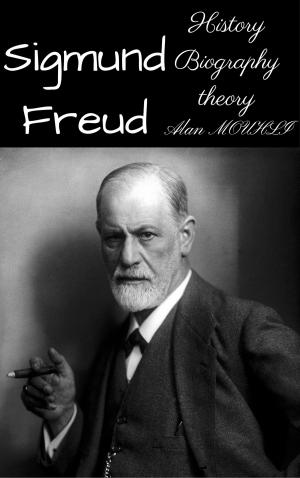| Author: | Alan MOUHLI | ISBN: | 1230001142532 |
| Publisher: | Alan MOUHLI | Publication: | May 22, 2016 |
| Imprint: | Language: | English |
| Author: | Alan MOUHLI |
| ISBN: | 1230001142532 |
| Publisher: | Alan MOUHLI |
| Publication: | May 22, 2016 |
| Imprint: | |
| Language: | English |
On December 18, 1879, in the Russian peasant village of Gori, Georgia, Iosif Vissarionovich Dzhugashvili (later known as Joseph Stalin) was born. The son of Besarion Jughashvili, a cobbler, and Ketevan Geladze, a washerwoman, Joseph was a frail child. At age 7, he contracted smallpox, leaving his face scarred. A few years later he was injured in a carriage accident which left arm slightly deformed (some accounts state his arm trouble was a result of blood poisoning from the injury). The other village children treated him cruelly, instilling in him a sense of inferiority. Because of this, Joseph began a quest for greatness and respect. He also developed a cruel streak for those who crossed him. Joseph's mother, a devout Russian Orthodox Christian, wanted him to become a priest. In 1888, she managed to enroll him in church school in Gori. Joseph did well in school, and his efforts gained him a scholarship to Tiflis Theological Seminary in 1894. A year later, Joseph came in contact with Messame Dassy, a secret organization that supported Georgian independence from Russia. Some of the members were socialists who introduced him to the writings of Karl Marx and Vladimir Lenin. Joseph joined the group in 1898.
Though he excelled in seminary school, Joseph left in 1899. Accounts differ as to the reason; official school records state he was unable to pay the tuition and withdrew. It's also speculated he was asked to leave due to his political views challenging the tsarist regime of Nicholas II. Joseph chose not to return home, but stayed in Tiflis, devoting his time to the revolutionary movement. For a time, he found work as a tutor and later as a clerk at the Tiflis Observatory. In 1901, he joined the Social Democratic Labor Party and worked full-time for the revolutionary movement. In 1902, he was arrested for coordinating a labor strike and exiled to Siberia, the first of his many arrests and exiles in the fledgling years of the Russian Revolution. It was during this time that Joseph adopted the name "Stalin," meaning steel in Russian.
Though never a strong orator like Vladimir Lenin or an intellectual like Leon Trotsky, Joseph Stalin excelled in the mundane operations of the revolution, calling meetings, publishing leaflets and organizing strikes and demonstrations. After escaping from exile, he was marked by the Okhranka, (the tsar's secret police) as an outlaw and continued his work in hiding, raising money through robberies, kidnappings and extortion. Stalin gained infamy being associated with the 1907 Tiflis bank robbery, which resulted in several deaths and 250,000 rubles stolen (approximately $3.4 million in U.S. dollars).
In February 1917, the Russian Revolution began. By March, the tsar had abdicated the throne and was placed under house arrest. For a time, the revolutionaries supported a provisional government, believing a smooth transition of power was possible. In April 1917, Bolshevik leader Vladimir Lenin denounced the provisional government, arguing that the people should rise up and take control by seizing land from the rich and factories from the industrialists. By October, the revolution was complete and the Bolsheviks were in control.
Read More
On December 18, 1879, in the Russian peasant village of Gori, Georgia, Iosif Vissarionovich Dzhugashvili (later known as Joseph Stalin) was born. The son of Besarion Jughashvili, a cobbler, and Ketevan Geladze, a washerwoman, Joseph was a frail child. At age 7, he contracted smallpox, leaving his face scarred. A few years later he was injured in a carriage accident which left arm slightly deformed (some accounts state his arm trouble was a result of blood poisoning from the injury). The other village children treated him cruelly, instilling in him a sense of inferiority. Because of this, Joseph began a quest for greatness and respect. He also developed a cruel streak for those who crossed him. Joseph's mother, a devout Russian Orthodox Christian, wanted him to become a priest. In 1888, she managed to enroll him in church school in Gori. Joseph did well in school, and his efforts gained him a scholarship to Tiflis Theological Seminary in 1894. A year later, Joseph came in contact with Messame Dassy, a secret organization that supported Georgian independence from Russia. Some of the members were socialists who introduced him to the writings of Karl Marx and Vladimir Lenin. Joseph joined the group in 1898.
Though he excelled in seminary school, Joseph left in 1899. Accounts differ as to the reason; official school records state he was unable to pay the tuition and withdrew. It's also speculated he was asked to leave due to his political views challenging the tsarist regime of Nicholas II. Joseph chose not to return home, but stayed in Tiflis, devoting his time to the revolutionary movement. For a time, he found work as a tutor and later as a clerk at the Tiflis Observatory. In 1901, he joined the Social Democratic Labor Party and worked full-time for the revolutionary movement. In 1902, he was arrested for coordinating a labor strike and exiled to Siberia, the first of his many arrests and exiles in the fledgling years of the Russian Revolution. It was during this time that Joseph adopted the name "Stalin," meaning steel in Russian.
Though never a strong orator like Vladimir Lenin or an intellectual like Leon Trotsky, Joseph Stalin excelled in the mundane operations of the revolution, calling meetings, publishing leaflets and organizing strikes and demonstrations. After escaping from exile, he was marked by the Okhranka, (the tsar's secret police) as an outlaw and continued his work in hiding, raising money through robberies, kidnappings and extortion. Stalin gained infamy being associated with the 1907 Tiflis bank robbery, which resulted in several deaths and 250,000 rubles stolen (approximately $3.4 million in U.S. dollars).
In February 1917, the Russian Revolution began. By March, the tsar had abdicated the throne and was placed under house arrest. For a time, the revolutionaries supported a provisional government, believing a smooth transition of power was possible. In April 1917, Bolshevik leader Vladimir Lenin denounced the provisional government, arguing that the people should rise up and take control by seizing land from the rich and factories from the industrialists. By October, the revolution was complete and the Bolsheviks were in control.
Read More















